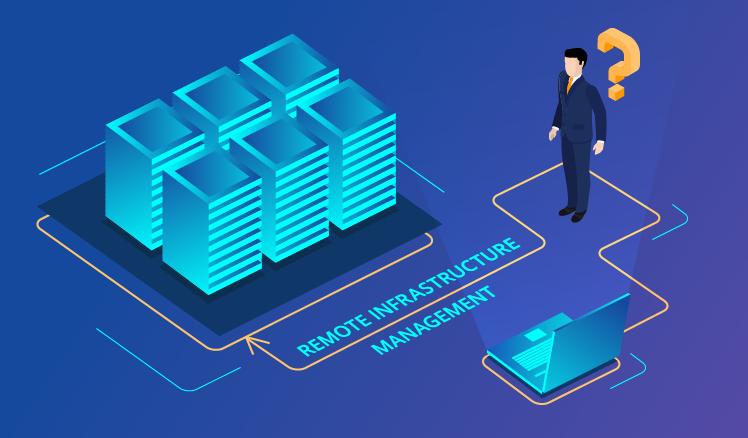What is the Future of Remote Infrastructure Management Services

In today's fast-paced digital world, the demand
for Remote Infrastructure Management (RIM) services is on the rise. As
businesses continue to rely on technology for their operations, the need for
efficient and effective management of IT infrastructure has become more
critical than ever. In this article, we will explore the future of RIM services
and how they are shaping the way businesses operate in the digital age.
What are Remote Infrastructure Management Services?
Remote Infrastructure Management services
involve managing IT infrastructure, including servers, networks, storage, and
databases, from a remote location. This allows businesses to outsource their IT
operations to a third-party service provider, who is responsible for
monitoring, managing, and maintaining their infrastructure 24/7. RIM services
help businesses reduce operational costs, improve efficiency, and enhance
security.
Shaping the Future of RIM Services
1. Increased Adoption of Cloud Computing
With the rapid adoption of cloud computing,
businesses are moving their infrastructure to the cloud to gain scalability,
flexibility, and cost-efficiency. As a result, RIM services are evolving to
include cloud management and support, enabling businesses to leverage the
benefits of the cloud while ensuring smooth operations.
2. Emphasis on Security and Compliance
Security and compliance are becoming more
important to businesses as cyber threats rise. RIM services providers are
enhancing their security measures to protect data and infrastructure from cyber-attacks.
Compliance with regulations such as GDPR and HIPAA is also becoming a top
priority for businesses, driving the demand for RIM services that ensure
compliance.
3. Automation and AI
Automation and Artificial Intelligence (AI) are
transforming the way RIM services are delivered. With automation tools and
AI-powered systems, RIM services providers can proactively monitor and manage
infrastructure, predict issues before they occur, and automate routine tasks. The
result is greater efficiency and a reduction in downtime for businesses.
4. Focus on Predictive Analytics
Predictive analytics is becoming a key focus
area for RIM services providers. By analyzing data and trends, RIM services can
predict potential issues and take proactive measures to prevent downtime and
disruptions. This predictive approach helps businesses maintain high
availability and performance of their IT infrastructure.
Benefits of Remote Infrastructure Management Services
Remote
Infrastructure Management Services offer businesses the ability to monitor,
manage, and maintain IT infrastructure from a remote location. This service
ensures operational efficiency, cost savings, and improved performance for IT
systems. Below are the key benefits of implementing RIMS for your organization:
1. Cost Savings
Outsourcing IT infrastructure management to a
remote service provider can result in significant cost savings for businesses.
By leveraging economies of scale and expertise of RIM services providers,
businesses can reduce operational costs and achieve better ROI.
2. Improved Efficiency
Using RIM services, businesses can focus on
their core operations while experts manage their IT infrastructure. This
improves efficiency, productivity, and agility, allowing businesses to remain
competitive in the digital landscape.
3. Enhanced Security
RIM services providers implement robust
security measures to protect data and infrastructure from cyber threats. By
outsourcing IT management to a trusted partner, businesses can ensure that
their infrastructure is secure and compliant with regulations.
Conclusion:
The future of Remote Infrastructure Management
services is bright, with trends such as cloud computing, security, automation,
and predictive analytics shaping the way businesses manage their IT
infrastructure. By outsourcing IT operations to a reliable RIM services
provider, businesses can achieve cost savings, efficiency, and security,
enabling them to focus on innovation and growth in the digital age.
Post Your Ad Here


Comments (1)
learn markets8
learn how to trade
It's a really insightful blog